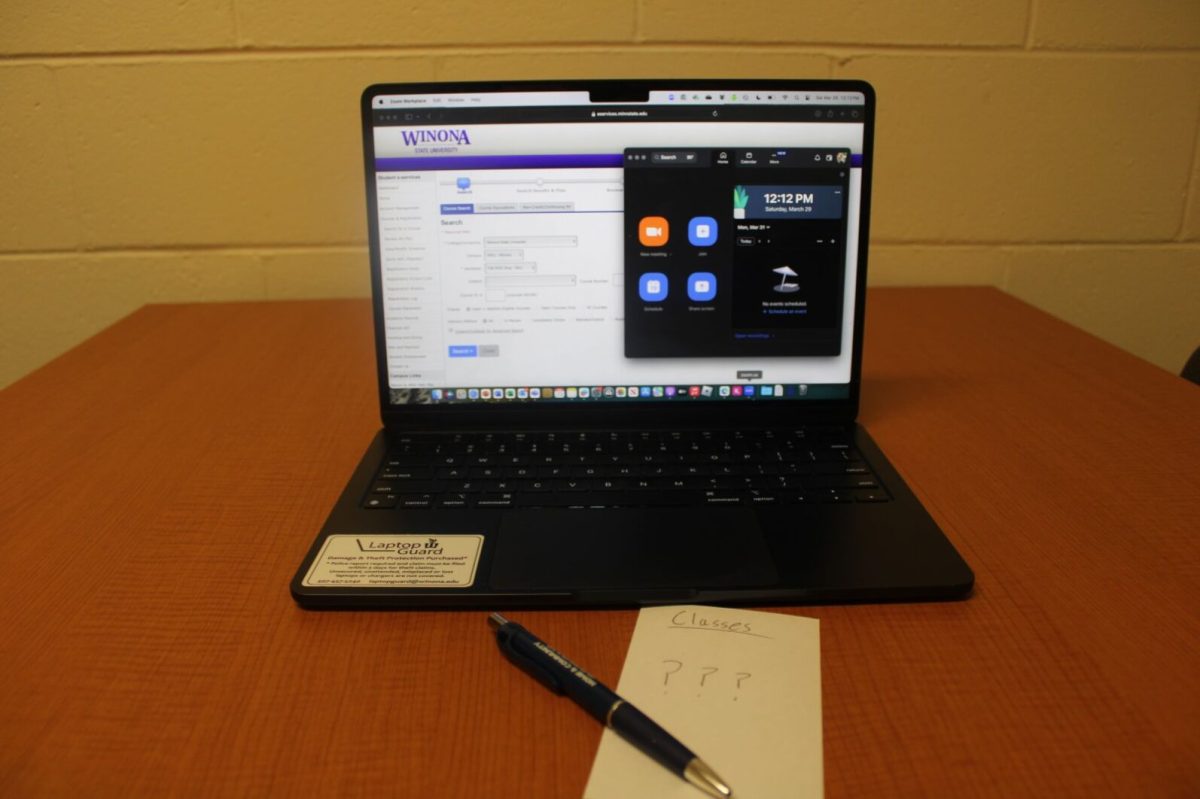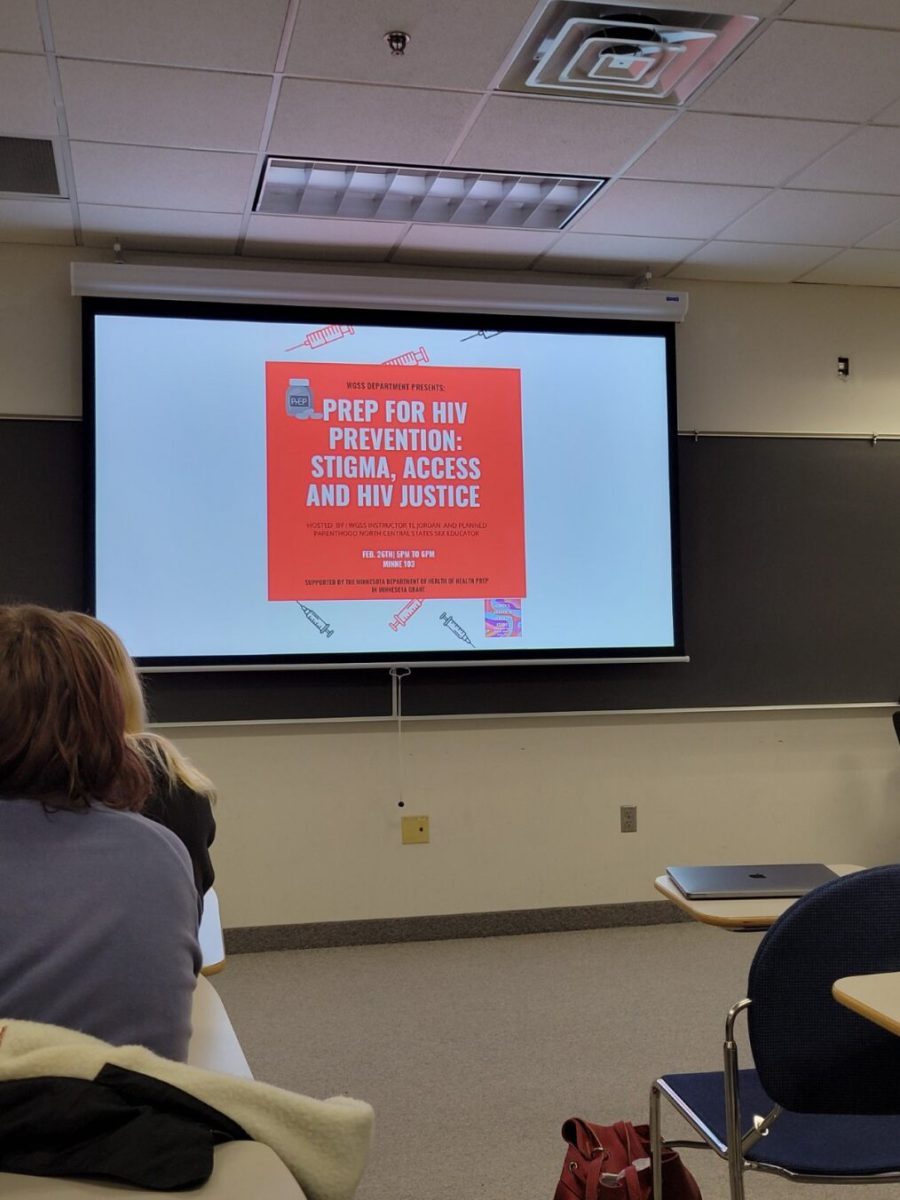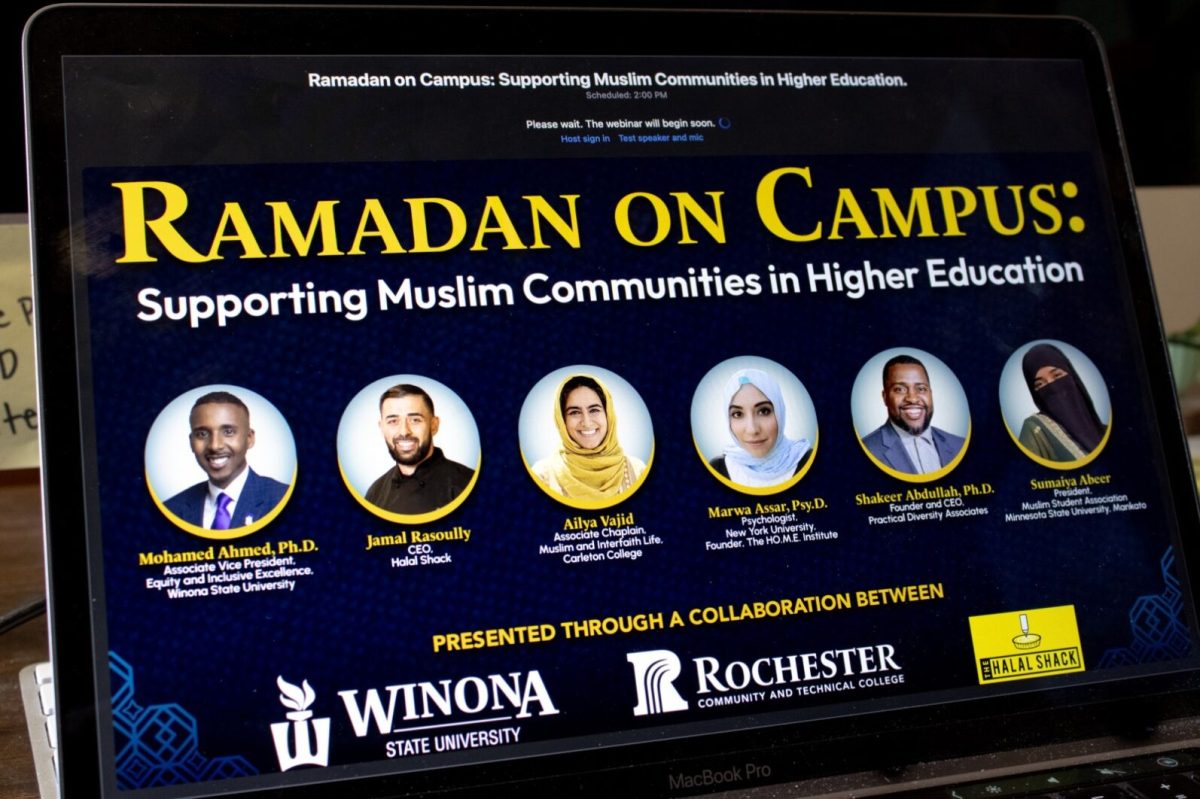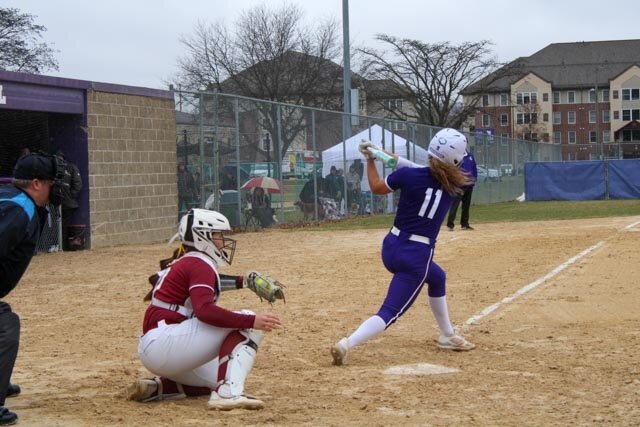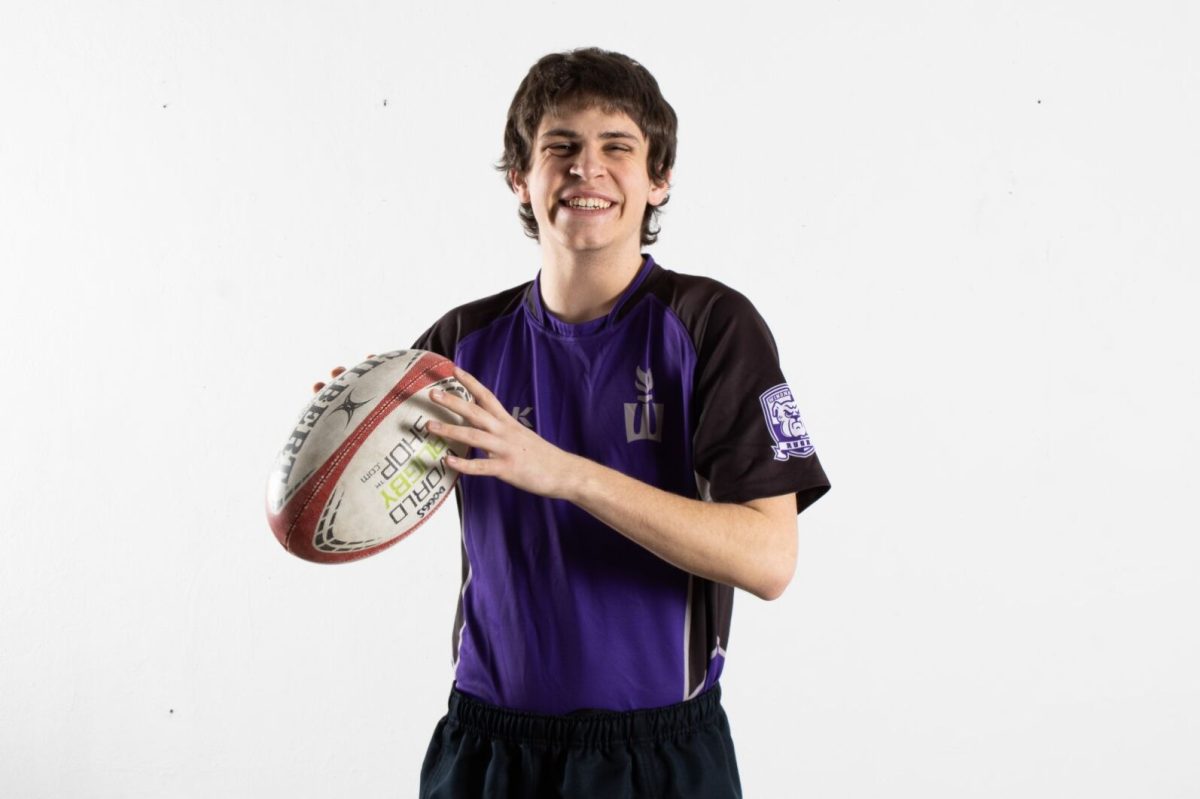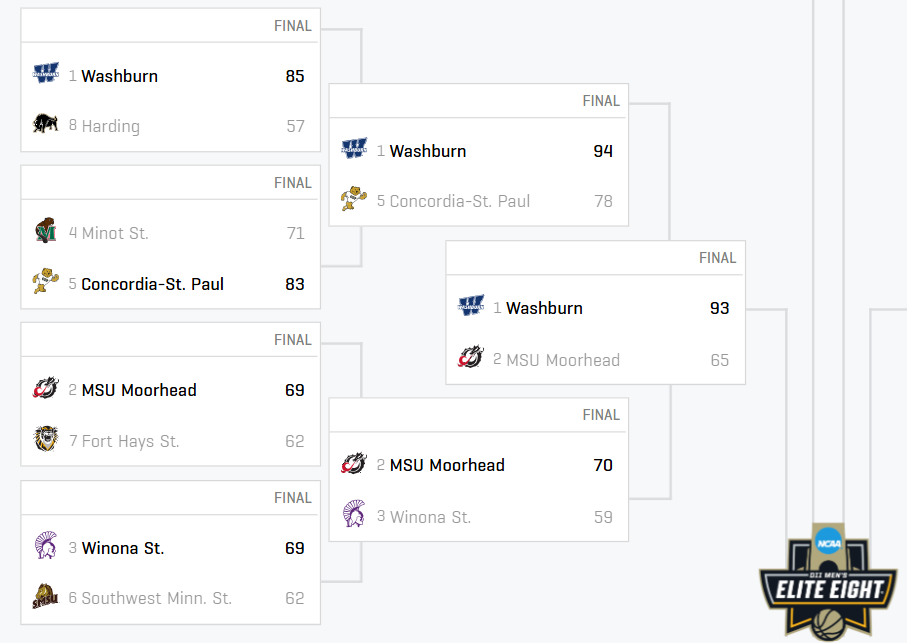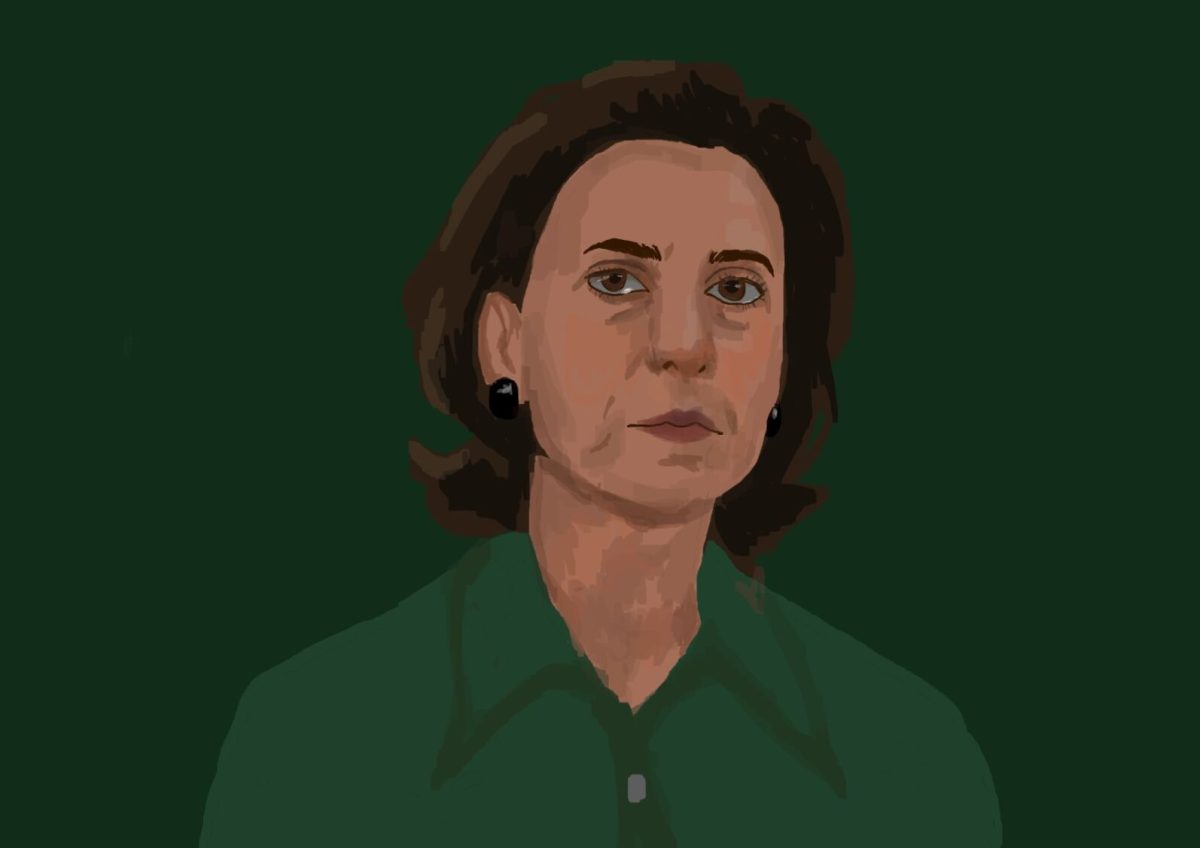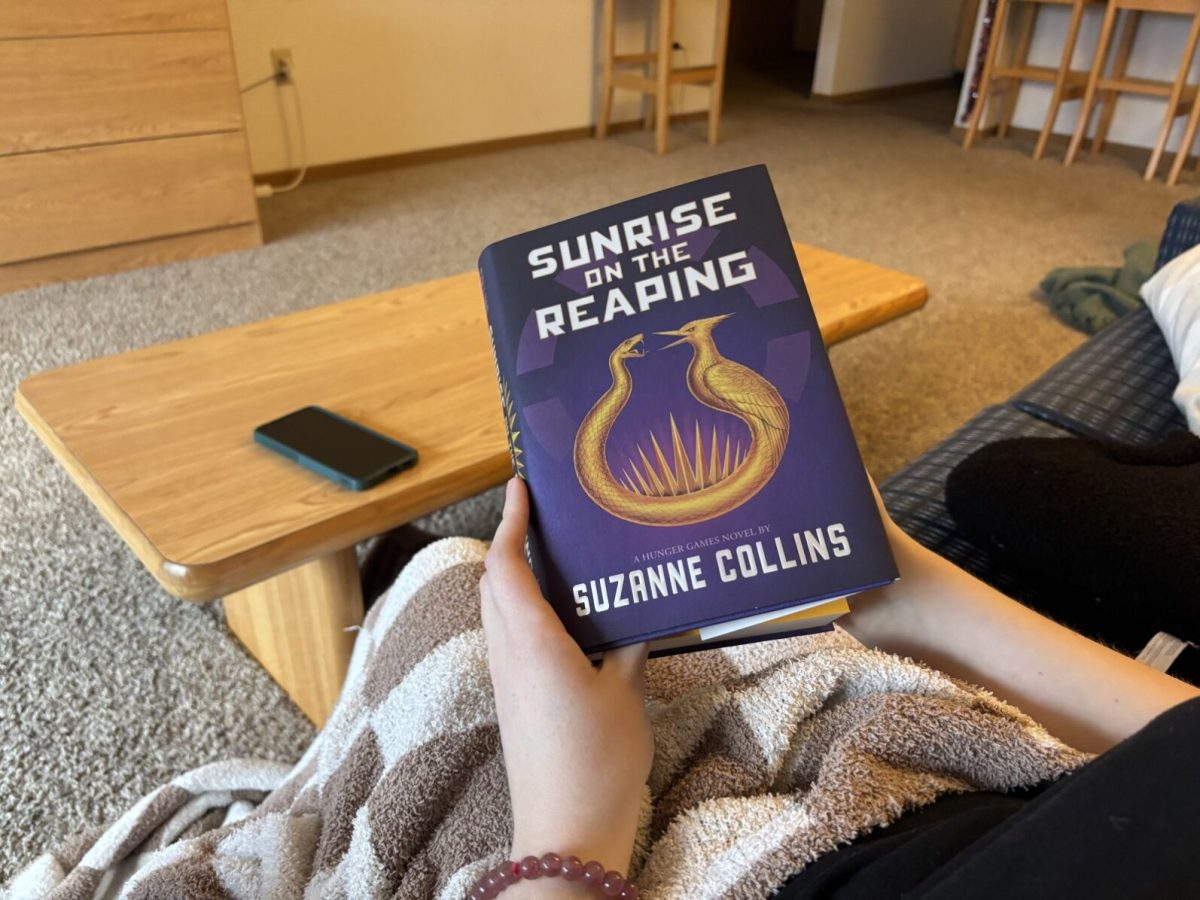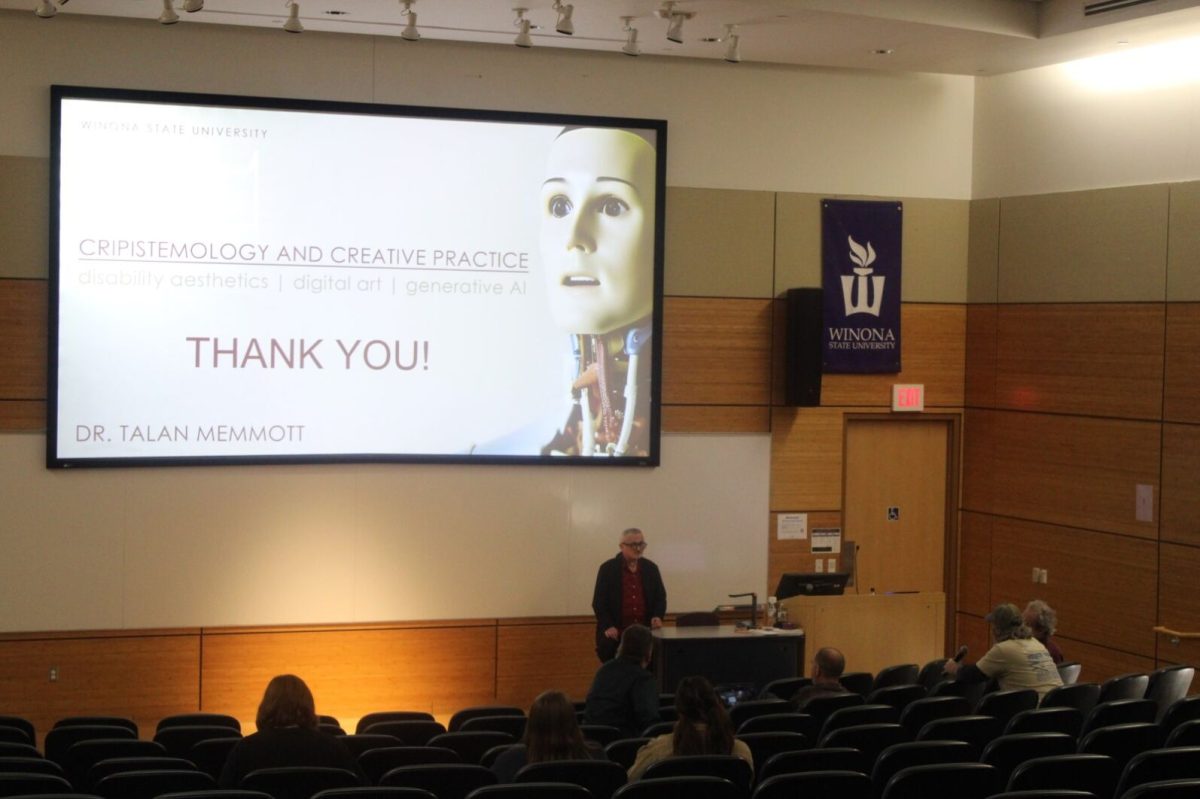Domestic Violence Awareness Month at Winona State
October 13, 2021
October is Domestic Violence Awareness Month. It is important to learn the dangers, types and characteristics of domestic violence and resources to get help.
I, author of this article, recently noticed a domestic violence dispute on the Winona State University campus. It was around 1 a.m. when I witnessed a college-aged man shouting and cursing at a woman, appearing to be his significant other, who was asking him to leave her alone. As a survivor of domestic violence, I recognized this behavior and intervened. The young woman told me she was the victim of an abusive relationship and was afraid
to leave it.
The National Coalition Against Domestic Violence (NCADV) defines domestic violence as, “willful intimidation, physical assault, battery, sexual assault and/or other abusive behavior as part of a systematic pattern of power and control perpetrated by one intimate partner against another.”
Domestic violence affects an estimated 25-33% of all adult Americans.
The NCADV also states, “1 in 3 women and 1 in 4 men have experienced some form of physical violence by an
intimate partner.”
Winona State’s Advocacy Coordinator, Jessica Schulz, explained that while many people are familiar with forms of physical violence, domestic abuse also includes psychological, emotional, financial, stalking and
sexual violence.
“Psychological abuse is more like gaslighting and making people feel like their reality is not real,” Schulz said.
Schulz defined emotional abuse as “trying to tear somebody down, making them feel worthless and making
them dependent.”
Financial abuse is “when one person is deciding how money is spent,” Schulz said.
The National Network to End Domestic Violence said, “Stalking often encompasses unwanted, repeated behaviors that are intended to surveil, monitor, threaten and ultimately scare someone.”
Sexual violence includes any sexual act done without consent. This includes coercion. Schulz said this violence is not exclusive to relationships.
“Those [stalking and sexual violence] are things that can happen outside of relationships, but they are also components of relationship violence,” Schulz said.
Knowing the characteristics of domestic violence can potentially protect victims from future harm, by encouraging them to find help after identifying a problem.
When discussing signs of domestic abuse, Schulz explained, “Healthy relationships are about negotiation and discussion and coming to agreements as partners, or as a group, whatever your relationship dynamic is. But when one person is determining how the other behaves… that is some kind
of abuse.”
Dr. Tamara Berg teaches women’s, gender and sexuality studies and is the chair of the sexual violence advisory committee at Winona State.
Berg warned, “whatever it is that perpetuates a cycle of power and control can be ammunition for violence.”
“In that cycle there are honeymoon periods.” Berg said. “There are periods where tension builds and violence ensues, but then often the victim is sucked back into the relationship through that honeymoon period and through that belief that ‘This guy is the love of my life.’”
Schulz identified some relationship red flags alluding
to abuse.
“If somebody is trying to isolate you or tell you who you can and can’t be friends with… that is a red flag in a relationship,” Schulz said.
Abusers may even manipulate birth control methods, “either by asking their partner to not be on birth control, making them not be on birth control or tampering with birth control,” Schulz said.
always make the decisions in the relationship? Is somebody always deciding where you eat, what time you eat, who you visit, or who you’re spending more
time with?”
If the answer to any of those is “yes,” that could be a sign of abuse. After identifying a problem of abuse within relationships, Schulz said there are resources to get help.
“It’s very important that you reach out for help when you can. That can look like reaching out to your friends or a family member,” Schulz said. “It can also look like reaching out to an advocate like myself or the Advocacy Center of Winona, and just making sure that you’re safe when you’re leaving… and making sure that you have a plan for how you’re going
to leave.”
Whether someone is looking for tools to get out of an abusive relationship or just wants to talk confidentially, Winona State’s Advocacy Coordinator, Jessica Schulz, is available to anyone experiencing domestic violence.
“Anybody can come and see me. They can text me, email me or walk in… I’m just here to support,” Schulz said.
Students can email the confidential advocate at jessica.schulz@winona.edu, call at 507-457-2956 or text at 507-470-0403.
Winona State Title IX Coordinator, Lori Mikl, can implement mutual restrictions on contact between parties. If a student lives in the same building as their abuser, Mikl also has the power to alter living situations on campus. The Title IX Coordinator may be contacted at lmikl@winona.edu or 507-457-2766.
Outside of the university, the Advocacy Center of Winona offers confidential help to victims/survivors of intimate partner violence.
Anyone can email the advocacy center at program@advocacywinona.org or call their 24/7 hotline at 507-452-4453.
Although these options are helpful, there is still room for improvement through Winona State and Winona County.
Berg hopes for a non-stigmatizing space for students to gather, suggesting, “A centralized resource space on campus would be really good for students.”
“We’re trying to collaborate with the Title IX coordinator which has hired four student educators…. My hope is that those four students along with Jessica Schulz, our confidential advocate, would be able to staff that office…,” Berg said.
Schulz added, “We definitely need to build housing here in Winona.”
Winona County currently does not have any domestic violence shelters. However, domestic abuse victims should still consider contacting Jessica Schulz or the Advocacy Center of Winona if in need of housing.
“We make it work, and the Advocacy Center of Winona is brilliant in making that happen,” Schulz said.
If students find themselves victims of domestic violence, whether it be physical, psychological, emotional, financial, stalking or sexual, help is always available through friends, family, Winona State and Winona County. No one is in this fight alone.

